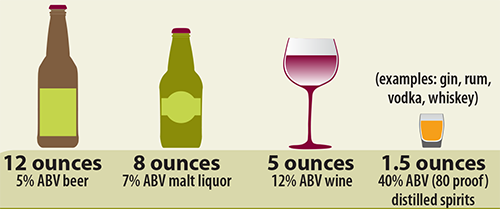
Lifestyles and Therapy, including Exercises, Diet, and Supplements
Reference: Pharmacist’s letter November 2020, resource #361105
Despite promotion for prevention of cognitive impairment or dementia, or to improve memory or cognitive function, no supplements can be recommended for these uses based on safety and efficacy data. Nevertheless, one may likely try supplements even in the absence of reliable evidence. The information below may help you to make some smart decisions.
One should look for a product with a seal of quality assurance from U.S. Pharmacopeia (USP Verified) or NSF International. This indicates that the product was properly manufactured, contains the ingredients listed on the label, and does not contain harmful levels of contaminants. For Canadian products, look for a Natural Product Number (NPN).
To minimize the risk of adverse effects, do not take multiple products or multi-ingredient products.
In 2003, the FDA determined that it would allow a qualified health claim stating that consuming phosphatidylserine may reduce the risk of developing age-related cognitive decline. However, the FDA has since determined that there is very little scientific evidence supporting this claim. Be aware that a small number of products are animal-sourced, posing a theoretical disease transmission risk.
Suggest sticking with doses of vitamins (e.g., B vitamins, E, C) that approximate recommended intakes to minimize risks. Vitamin E supplements have been associated with increased mortality in patients with chronic conditions (>400 IU/day) and bleeding (2800 IU/day); pyridoxine (vitamin B6) >500 mg/day can cause neuropathy; and vitamin C can cause gastrointestinal upset, diarrhea (>2 g/day), and recurrent kidney stones (21 g/day).
For supplements with bleeding risk (e.g., vitamin E, fish oil [omega-3 fatty acids 23 g], ginkgo, ginseng, turmeric), advise discontinuation 14 days before surgery.
For patients interested in fish oil, a Mediterranean diet is recommended instead.
Acetyl-l-carnitine is likely safe.
Apoaequorin (Prevagen) is a protein purported to improve memory. However, it is digested by pepsin so it is not realistic that it could have systemic effects when taken orally. Postmarketing reports of adverse effects include hypertension, hypotension, chest pain, irregular heart rate, seizure, and stroke, but it is unclear whether apoaequorin was responsible. The manufacturer recently settled a class-action lawsuit for making deceptive claims about the product’s effect on memory.
Huperzine A has acetylcholinesterase inhibitor properties. It can cause cholinergic side effects (e.g., such as with donepezil) including bradycardia, syncope, nausea, vomiting, and diarrhea.
Citicoline is well-tolerated. The most common side effects are nausea, abdominal pain, and diarrhea.
Bacopa may inhibit acetylcholinesterase. It has caused increased stool frequency in 30% of patients, nausea in 18% of patients, and abdominal cramps in 16% of patients in studies.
Exercise
Physical activity is known to offer benefits for both the human body and the brain. Amongst these benefits include heart and lung health, muscle strength, flexibility and even assisting in managing conditions such as depression and anxiety. Additionally, physical activity has also been shown to improve cognition, or the ability to think. It is also important to recognize one particularly important benefit of physical activity or exercise, which is reducing the risk of falling. With aging, the risk of falling naturally increases as the body experiences changes in vision, sensation in the feet, and slowed ability to react in the instance of losing balance. For many years, studies have been conducted to review the specific benefits of physical activity/exercise for people with dementia. In years past, evidence has been mixed regarding the benefit. However, in October of 2020, Demurtas, et al. concluded a review of many studies and concluded that physical activity/exercise improved cognition as well as decreased the chance of falling.
Knowing that physical activity/exercise has a positive impact, many may ask what activity or exercise they should do. Studies have been done on home-based exercises such as walking, weightlifting, chair exercises, mind and body exercise, and tai chi. Regardless of the type of exercise or activity, it is always recommended to choose something you enjoy and find interesting and fun. Having an exercise or activity partner or attending an exercise class can be a great way to stay consistent. No matter what activity you chose, consistency is important, and you should try to exercise no less than 3 times each week.
If you have questions about exercise or physical activity and what you can do, contact your doctor or health professional for additional information.
Alcohol Use and Dementia
Considering the current and future numbers of people with dementia and its associated disabilities, early detection and management of dementia is an important health priority. Alcohol use plays a significant role in the development of early-onset dementia and in the onset and progression rate of late-onset dementia. In people less than 65 years old most people with diagnoses of dementia were determined to be alcohol-related. Also, younger diagnosis of alcohol use disorder was related to the onset of dementia in later years.
Light drinking (one standard drink of beer, wine, or liquor) is associated with decreased risk of being diagnosed with mild cognitive impairment and dementia and dying from dementia.
Moderate to heavy drinking (two or more standard drinks a day) is associated with an increased risk of being diagnosed with either mild cognitive impairment or dementia.
Heavy drinking is also associated with thiamine deficiency which can cause brain disorders, epilepsy, head injury, and hepatic encephalopathy. High blood pressure, stroke, irregular heart rate, and heart failure are also related to an increase in alcohol intake.
Moderate and high alcohol use is associated with all types of dementia. The amount of alcohol intake and resultant risk for dementia are commonly underestimated. Since alcohol use disorders are a strong modifiable risk factor for dementia onset and progression, identification of their presence allows this factor to be recognized and addressed so that early detection, brief interventions, and treatment can be effective even in primary care.

